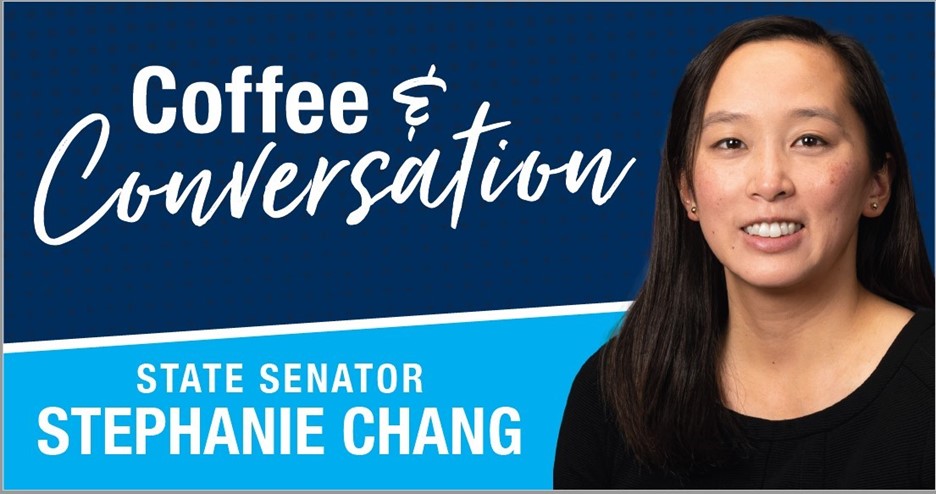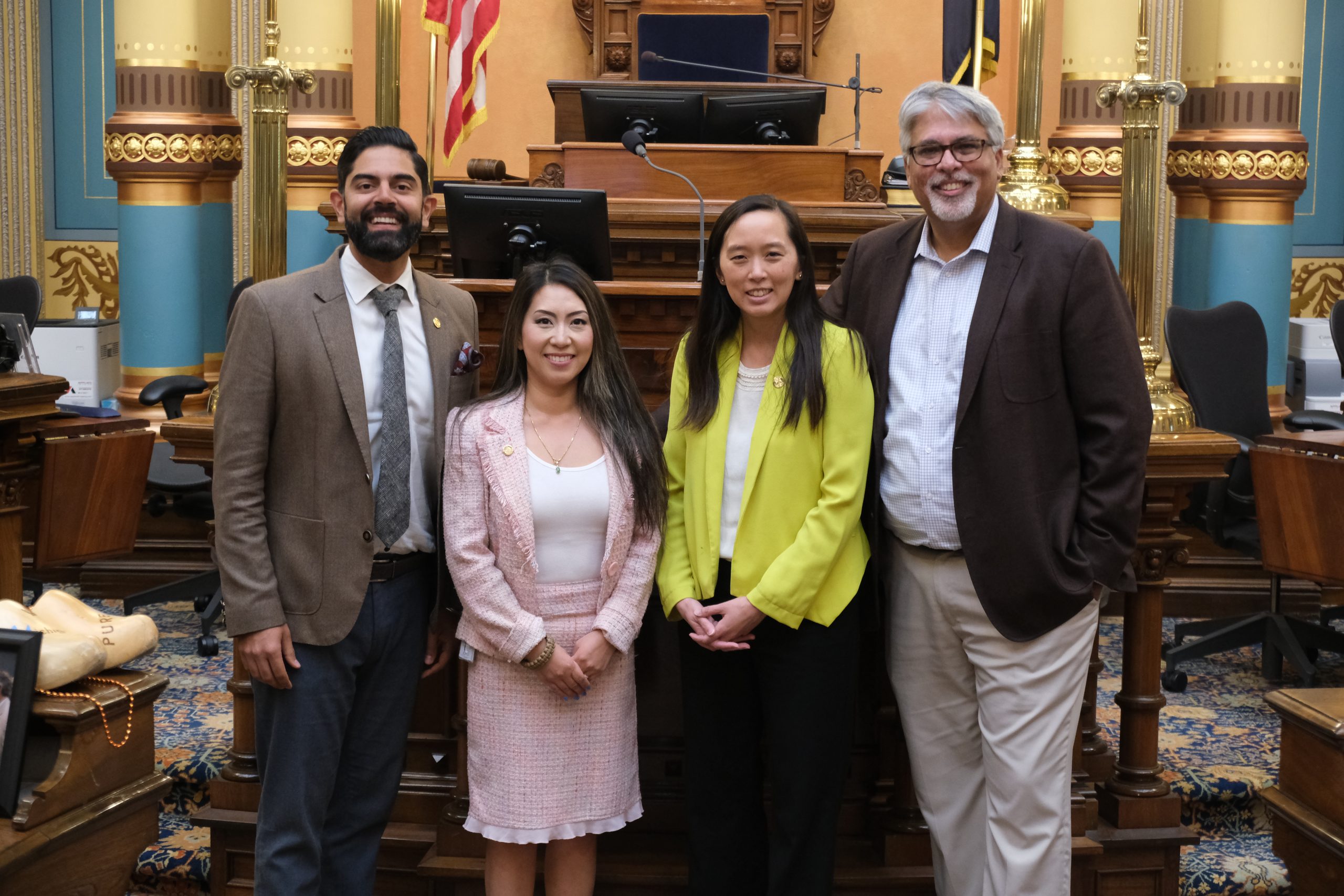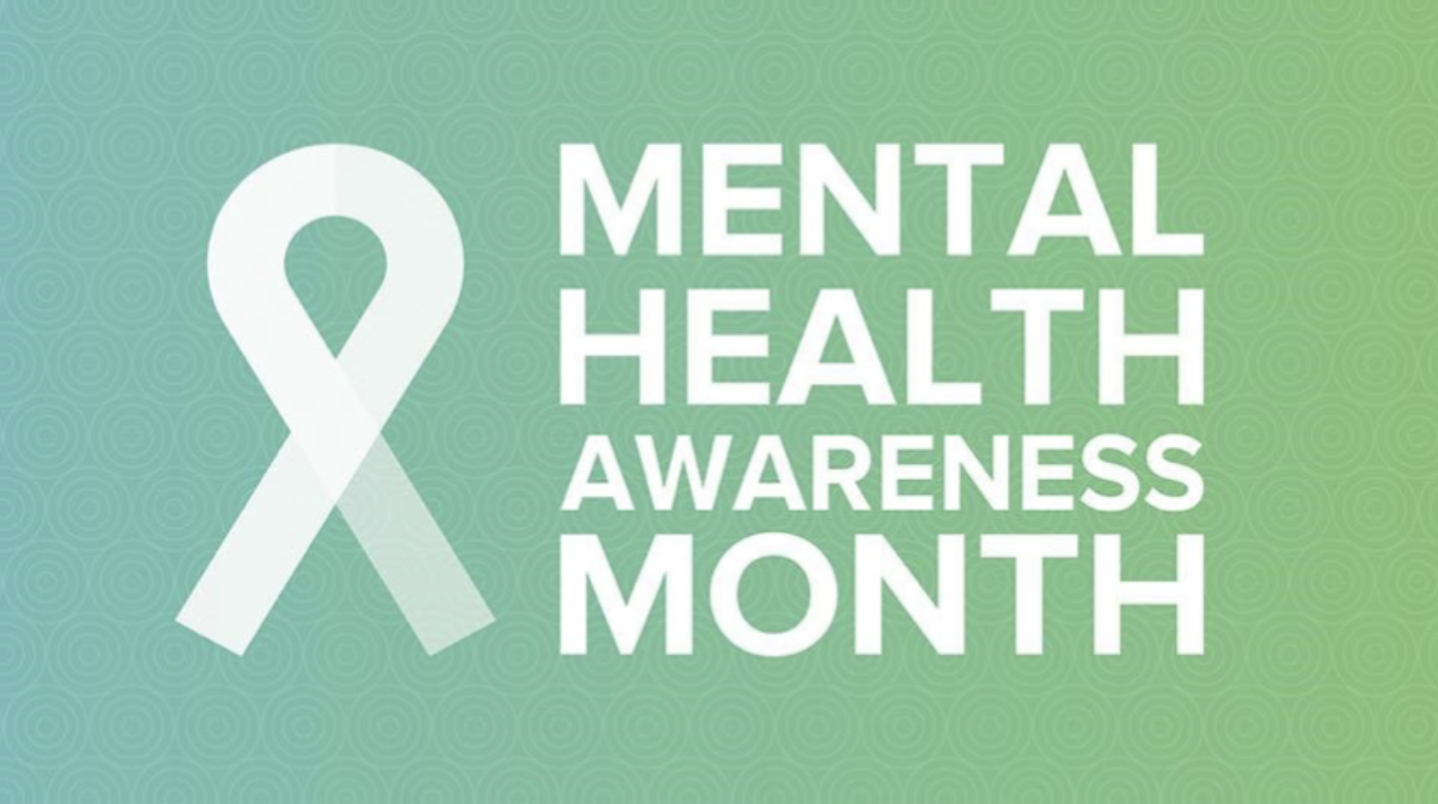Dear Neighbor,
With spring sunshine finally here, I’m energized to continue getting things done for our community and look forward to all we can accomplish together.
Both in Lansing and throughout District 3, our team has been keeping busy advocating for a strong budget that helps address community needs, making progress on legislative priorities, and connecting with residents throughout the district. With this newsletter, I hope to provide an update on the many things we have been up to.
As always, if you or someone you know would like to provide any feedback about what’s happening in Lansing, or needs assistance, please feel free to reach out to my office. You can email us at senschang@senate.michigan.gov or call our Lansing office at 517-373-7346 or our district office at 313-922-6949.
Working for you,

Stephanie Chang
State Senator
District 3
Upcoming Events
May Coffee and Conversations

Coffee Hour with Special Guest Rep. Mike McFall
WHEN: Monday, May 20, from 11:00 a.m. – 12:00 p.m.
WHERE: Hazel Park District Library, 123 E 9 Mile Rd., Hazel Park, MI 48030
Asian American Native Hawaiian Pacific Islander Heritage Month

Pictured above from left to right: Rep. Ranjeev Puri, Rep. Mai Xiong, Sen. Stephanie Chang, and Sen. Sam Singh in Senate Chambers
May is Asian American, Native Hawaiian and Pacific Islander Heritage Month! Asian Americans, Native Hawaiians and Pacific Islanders are the fastest growing population in Michigan, and May is an important time to celebrate our communities’ contributions, heritage, history and challenges. I am proud to be Asian American and honored to serve alongside three other Asian Americans in the Michigan State Legislature, where we are working diligently to uplift the voices of our residents and get things done on language access, addressing gun violence, officially recognizing Fred Korematsu Day, protecting places of worship from desecration and more. Thank you to Governor Whitmer for honoring the contributions of the AANHPI community here in Michigan and across the country by proclaiming May as Asian American, Native Hawaiian and Pacific Islander Heritage Month.
Senate Democrats Recognize Workers’ Memorial Day

Michigan Senate Democrats passed Senate Resolution 111, recognizing April 28, 2024, as Workers’ Memorial Day. On this day every year, communities and worksites around the world and across the state honor friends, family members, and colleagues who have been killed or injured on the job.
Workers’ Memorial Day honors the integrity of Michigan’s workforce and honors the memory of the courageous and dedicated members of Michigan’s labor force who have been injured or disabled or have died as a result of workplace accidents.
In 2022, the federal Bureau of Labor Statistics estimated that in Michigan, 139 workers were lost through fatal workplace accidents and 5,486 workers were killed by traumatic injuries on the job across the nation — on average, a worker died every 96 minutes from a work-related injury.
Senate Democrats remain dedicated in our effort to seek stronger workplace safety and health protections, better standards, and enforcement, and fair and just compensation — continuing to fight to improve both safety and health in every workplace.
Legislative Updates
Working to Deliver a Fiscally Responsible, Community-Focused State Budget
Last year marked a significant milestone for Michigan Democrats as we capitalized on their first trifecta in 40 years to spearhead a transformative budget — directing vital resources into historically neglected sectors like infrastructure, education, and local communities.
Crafting this state budget is a collaborative effort involving negotiations between both legislative branches and the governor, resulting in a new state budget being signed into law each year to distribute funding to residents, schools, communities, businesses, local governments and more.
Currently, we’re in the thick of our annual budget process with subcommittees reporting out proposals for the full Appropriations Committee’s consideration. I have been advocating for statewide and district needs and am encouraged about the work ahead. As we work to deliver a budget by the end of June, I encourage you to learn more about the process and the investments we’re looking to make to support communities across Michigan — read more here.
Action on Juvenile Justice Data Bill
This past Thursday, the Senate Committee on Civil Rights, Judiciary, and Public Safety held a hearing on my bill, Senate Bill 688. Last year, the Michigan Legislature passed historic reforms of our juvenile justice system that will ensure that more young people have opportunities to succeed by using evidence based screening tools and getting more youth into diversion programs. It is important that we evaluate these programs’ impact as we move forward. The information has been redacted of personally identifiable information to be collected by a court official and provided to a researcher or program evaluator for the sole purpose of a research request granted by the state court administrative office. The juvenile diversion record would still have a unique identifier such as a case record number, petition number, or other unique identifier as determined by the court and researcher. If the request is granted by a court official, the involved parties will negotiate a data use agreement that will protect personal identifiable information from public disclosure. Researchers and program evaluators need access to this data to be able to analyze juvenile diversion efforts and evaluate whether the state is reaching the intended outcomes.
Modernizing Michigan’s Election Recount Law
Every voice matters; every vote matters. I have been working with my Senate colleagues, the Secretary of State, county clerks and other organizations on Senate Bills 603–604, bills that will reform Michigan’s election law by ensuring the accuracy of voter recounts. Michigan has seen several recounts where the entity asking for a recount had no mathematical chance of changing the outcome in their favor based on the number of votes requested to be recounted. Also, under current Michigan law, precincts are not allowed to be recounted when the number of voters in poll books doesn’t match the number of ballots in the box, even if there is an explainable human error observed by the election worker, such as the voter walking out before turning in their ballot or the voter going to the wrong polling location. Senate Bill 603, which passed the Senate last week, would address these issues in addition to many other specific gaps in the recount law that need to be modernized. For example, under this bill, clerks who administer recounts could adequately cover the cost of the recount. Also, this bill would ensure the public understands that a recount is not an investigation or audit. All in all, Senate Bills 603-604 include common sense changes that would uplift voices. This bill will now head to the House of Representatives for further consideration.
Resources
Essential Resources for Mental Health Awareness Month

With one in five Americans and nearly 1.5 million Michiganders experiencing mental health issues each year, it’s important to remind ourselves to care for our mental and emotional health. If you find yourself emotionally struggling or experiencing a mental health crisis, please be sure to utilize the following resources and remember — you matter!
Crisis Lines
- 988 Suicide and Crisis Lifeline: 988 is a 24/7 toll-free nationwide hotline that provides confidential and compassionate care for anyone struggling with behavioral health issues, emotional distress or substance use crisis. If you or someone you know is struggling or in crisis, help is available. Call or text 988 or visit their Lifeline Chat to connect with a trained crisis counselor.
- Veterans Crisis Line: The Veterans Crisis line provides veterans and their family members with 24/7, confidential support. To connect, call 1-800-273-8255 and press 1 or text 838-255. You do not have to be enrolled in VA benefits or health care to call.
- Trevor Lifeline: The Trevor Project has trained counselors who understand the challenges young people in the LGBTQ community face and are available for support 24/7. Call 1-866-488-7386, text 678-678, or click here to speak with a crisis counselor.
Locating Treatment Services
- Michigan 211: If you need assistance locating long-term mental health resources, talking through a problem, or exploring mental health treatment options, call 211 or visit mi211.org to speak with a live person who can help. All conversations are confidential, can be made anonymously, and are available in 180 languages upon request.
- Substance Abuse and Mental Health Services Administration: Visit FindTreatment.gov, a confidential and anonymous resource, to locate treatment facilities for mental and substance use disorders near you.
- Michigan Community Mental Health Services Programs: CMHSPs provide a comprehensive range of services and supports to children, adolescents and adults with mental illnesses, developmental disabilities and substance use disorders in all 83 Michigan counties. Find your local program here.
Free Gun Locks Now Available at MDHHS Offices
Gun violence is the leading cause of death for Michigan children and teens, and in recent years, unintentional shootings by children have been rising. To promote responsible gun ownership and help keep families safe from the devastating effects of gun violence, my colleagues and I took bold action last year to deliver a slate of gun violence prevention legislation that Michigan residents have waited years for.
Among the legislation passed, Public Act 17 of 2023 requires firearms to be locked and unloaded when unattended, particularly if minors are likely to be present. Failure to comply results in penalties, including misdemeanors and felonies, if minors gain access to improperly stored firearms.
To help minimize the cost of purchasing firearm safety devices, the Michigan State Police (MSP) and Michigan Department of Health and Human Services (MDHHS) are partnering together to offer free gun locks to the public at MDHHS county offices and some local health departments.
To request a free gun lock while supplies last, you can visit your local MDHHS office or check with your local health department, some of which will have gun locks available. Free firearm safety devices can also be obtained through Project ChildSafe police partners across the state. These cable-style gun locks are made possible due to funding secured in the 2024 State Police Budget passed by the Legislature last year.
For more information, click here.

